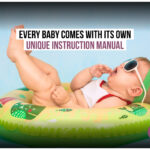{Podcast} The Future of Influence: Why Trust is the New Currency of Success
You know, I’ll admit, it’s always a little surreal to sit in a radio studio and discuss the power of influence in the same breath as pop culture curiosities, like Duran Duran covering an ELO song. Yet, here we are, in a world where what’s old is new again, and the concept of influence is no different. Influence isn’t just about celebrities or headlines; it’s woven into the fabric of our lives, from the brands we support to the voices we trust. But the real question today is, who do we trust, and why?
In my latest radio conversation with James Ross, we started with this very notion. Who’s driving influence now? Historically, it was always the ones in power—corporate heads, political leaders, religious figures. They were our guiding lights. But today, influence feels almost… democratized, yet strangely chaotic. We’re no longer handed a list of credible sources or authorities to trust. Instead, we’re given personalities, brands, and algorithms, each one vying for our trust and attention, often more powerfully than any politician or religious leader could.
And it’s not all sunshine and roses. Influence has become this curious mix of power, vulnerability, and relatability. Elon Musk, Ronaldo, Tim Cook—they’ve all crafted personas that go beyond their roles. They’re not just CEOs or sports stars; they’re symbols, ideas that resonate, challenge, or even polarize. But they all share one thing: they’ve earned, or in some cases demanded, trust. They are the new voices of authority, for better or worse.
But here’s the kicker: trust is the real currency underpinning all this influence. In a world where information is as fleeting as a social media scroll, trust is both scarce and valuable. And that’s precisely what we dove into on air—how trust shapes our decisions, our beliefs, and yes, our influence. It’s no longer enough to be an authority; you must be trustworthy, and that’s a whole different game.
Influence and the Brain: Why Trust Isn’t a Choice
We may think we’re immune to influence, that we decide who and what we trust with clear, rational logic. But neuroscience would beg to differ. Our brains are wired to respond to familiar faces and consistent voices, forming connections even when we’re aware of the game being played. That’s the magic of what neuroscientists call “mirror neurons.” These neurons activate when we see someone we follow or admire, making us feel closer to them, even if we’ve never met. And that’s why influence is so powerful—it’s not just about authority; it’s about resonance.
Take Elon Musk, for example. Love him or loathe him, Musk isn’t merely a name behind electric cars and space rockets. He’s a presence, a narrative, a story. He shows up, speaks up, and doesn’t back down. It’s this consistency, combined with his audacious goals, that pulls people in. And as we discussed on air, his influence extends beyond products. He’s crafted a brand of trust—not traditional trust in his reliability, but trust in his vision. We believe in his ideas because he’s relentless in promoting them.
But here’s the challenge: while we gravitate toward these personalities, our trust is increasingly conditional. We’re a society that has lost trust in traditional institutions—governments, religions, you name it. We used to turn to these pillars for guidance; now we dissect them, question them, even mock them. Our trust has moved away from the old gatekeepers and toward those who seem more relatable, more real. It’s a fundamental shift, and it has deep implications for anyone who aims to build influence today.
Building Influence and Trust: A Different Playbook
In today’s climate, trust isn’t just given; it’s earned—and then re-earned over and over. And it’s nuanced. Trust in business, or as an individual, is not as simple as showing up on time or delivering on promises (although, let’s be honest, that’s a good start). Real trust is multidimensional, something we have to actively assess, measure, and cultivate. But how do we do that in a meaningful way?
Let’s go deeper than the usual “be reliable” advice. Here are three ways to gauge and build trust that challenge the usual playbook, steps that go beyond the superficial and get to the heart of what it means to be truly trustworthy.
1. The Trust Reflection Test: Seeing Ourselves as Others Do
One of the first steps in building genuine influence is seeing ourselves through the eyes of others. How often do we assume we’re trusted, only to realize that we may not be quite as credible as we thought? To get an honest gauge, try a “trust reflection test.” Choose a few people whose opinions you respect—clients, colleagues, even close friends—and ask them:
- What makes me trustworthy, or untrustworthy?
- When would you hesitate to follow my advice?
- What three words best capture my reliability?
It’s a humbling exercise. But the feedback reveals more than just opinions; it highlights the patterns that shape how others perceive us. Maybe you’re seen as reliable but not particularly transparent, or maybe there’s an impression that you overpromise. Whatever it is, these insights show where trust aligns or falls short, providing a clear roadmap for how to strengthen your influence genuinely.
2. The Trust Calibration Scale: Measuring the Gap Between Intent and Perception
We often think we’re being trustworthy because, in our minds, we’re showing up with integrity and consistency. But do others see it that way? Here’s a method I’ve found useful—create a simple “Trust Calibration Scale.” It’s straightforward: rate yourself from 1 to 10 in three categories: Reliability, Integrity, and Transparency. Then, invite key clients or team members to do the same anonymously.
When you compare scores, gaps will emerge. Maybe you see yourself as transparent, but clients disagree, signaling that something in your communication might be missing the mark. Or perhaps you rate high in reliability, but others see room for improvement. These discrepancies are gold mines—they show you exactly where to recalibrate and realign, making your trustworthiness something you can actively improve over time.
3. The Trust Pivot: Tailoring Influence to Different Audiences
Trust is not one-size-fits-all, nor is influence. Imagine three of your most important relationships—let’s say a client, a mentor, and a peer. Each of them likely values something different from you. For a client, consistency and results may matter most. A mentor might prioritize honesty and openness to feedback. A peer may value your empathy and support.
The Trust Pivot exercise is about identifying what each of these key stakeholders needs most from you and consciously adjusting your approach to meet those needs. Tailoring your influence like this deepens trust in each relationship, giving you a more resilient and adaptable form of influence across varied contexts.
Influence in a World of Mistrust
When I reflect on the role of influence today, I keep returning to one simple truth: we’re in an era where trust is scarce, and influence is a reflection of how well we cultivate and safeguard it. Whether you’re leading a business, building a personal brand, or just trying to be a positive presence in the lives of those around you, trust is the difference between fleeting attention and lasting impact. And let’s be honest, in a world of relentless noise, the latter is what truly counts.
The world has changed, yes, but the fundamentals of influence haven’t. It’s about showing up, listening, and committing to a vision that serves others as much as it serves yourself. And, just as we explored in the radio segment, it’s about recognising that influence, for all its power, is nothing without the trust to back it up. So, next time you find yourself wanting to make an impact, start by asking: How can I be worthy of trust today?
Because in this ever-shifting landscape, trust isn’t just currency—it’s legacy.
Listen to the full segment on Hong Kong Radio 3 with James Ross (13 minutes 50 seconds)
By Morris Misel, Business Futurist and Speaker
Morris Misel is a globally renowned business futurist with over 40 years of experience guiding leaders and organisations through transformative change.
Known for his human-centered insights into the future of business, technology, and influence,
Morris has delivered over 2,600 keynotes and workshops worldwide, inspiring leaders to see trust as their most powerful currency.
His thought leadership spans across 160 industries, helping executives, strategists, and decision-makers prepare for what’s next.
You can explore more of his forward-thinking insights at Morris Misel’s Blog or connect with him on LinkedIn.
#TrustInBusiness #LeadershipInfluence #FutureOfInfluence #TrustAndCollaboration #BusinessStrategies #DecisionMaking #ExecutiveLeadership #DigitalInfluence #HumanConnection #CorporateTrust #InfluenceAndAuthenticity #ModernLeadership #StrategicDecisionMaking #CEOPerspective #KeyDecisionMakers #CultivatingTrust #BusinessTrust


 The Future of Parenting is Here: AI-Powered Co-Pilots for Families
The Future of Parenting is Here: AI-Powered Co-Pilots for Families 